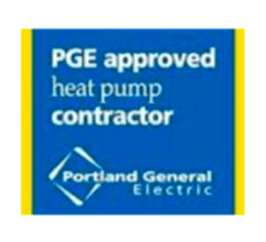When the power goes out, it can catch you off guard, especially if you’re unprepared. Whether it’s a brief interruption or a prolonged outage, knowing the right steps to take can save you time, protect your home, and ensure your safety. For all homeowners, having a clear plan of action is essential. This guide walks you through what to do when the power goes out and offers tips to safeguard your household.
Understanding Power Outages
Not all power outages are the same, and understanding their causes can help you respond effectively. Here are the most common types of outages:
Types of Power Outages
- Planned Outages: Utility companies sometimes schedule outages for maintenance or repairs. These are usually communicated in advance so you have time to prepare.
- Unplanned Outages: These occur suddenly due to unforeseen events like storms or technical failures.
- Short-Term Outages: Power is restored quickly, often within minutes or hours.
- Long-Term Outages :Major disruptions, such as severe weather-related damage, can leave you without power for days or even weeks.
Common Causes of Power Outages
- Weather Events – Heavy storms, high winds, snow, and ice can take down power lines.
- Equipment Failure – Aging or overloaded electrical infrastructure can malfunction unexpectedly.
- Human Error – Accidental damage to electrical systems during construction or maintenance work is also common.
- Animals and Wildlife – Squirrels, birds, and other animals can cause damage to power lines and equipment.
Stay Prepared for Power Outages
The first step to managing a power outage is being prepared. Here are some tips to help you stay prepared:
- Create an Emergency Plan: Discuss evacuation routes, emergency contacts, and essential supplies needed during extended outages.
- Stock Up on Supplies: Keep a stock of non-perishable food, flashlights, batteries, first aid kits, and other essentials ready.
- Stay Updated with Local News and Alerts: Keep an emergency radio to stay tuned to local news channels and alerts for updates on power outages and safety measures.
First Response When the Power Goes Out
When the lights suddenly go out, it’s easy to feel overwhelmed. Follow these steps immediately to assess the situation:
1. Check if It’s Only Your Home
Look outside to see if your neighbors have power. If your home is the only one affected, the problem may be with your circuit breaker or electrical system.
2. Inspect the Main Breaker
Locate your home’s breaker panel and ensure all switches are in the proper position. Flip the breaker off and on to reset it. If that doesn’t fix the issue, the problem may lie with your utility provider.
3. Report the Outage
If the outage isn’t isolated to your home, contact your utility company to report the outage or check their outage map for updates.
Ensuring Safety During a Power Outage
Hopefully, the power outage will only last a short time, but safety will become your number one goal if you find the outage dragging on. Once you’ve assessed the situation, focus on keeping your household comfortable. Here are crucial precautions:
Alternative Lighting & Heating Sources
- Use battery-powered lanterns or flashlights instead of candles to reduce the risk of fire.
- If it’s cold, opt for safe heating alternatives, like portable gas heaters designed for indoor use. Ensure proper ventilation to prevent carbon monoxide buildup.
- Consider moving your family into a smaller room in your home. It is easier to keep a smaller area warm.
Food and Water Safety
- During a prolonged outage, keep refrigerator and freezer doors closed as much as possible to maintain the cold temperatures. A full freezer can keep food safe for up to 48 hours if unopened.
- Avoid drinking tap water if you suspect contamination due to a lack of power at water treatment facilities. Boil water or use bottled water when in doubt.
Protecting Your Home and Appliances
Power outages can lead to sudden power surges when electricity is restored. These surges can damage your appliances and electronics. Here’s how to protect them:
Power Surge Protection
- Unplug high-value electronics like TVs, computers, and gaming consoles to prevent damage.
- Consider investing in surge protectors or uninterruptible power supplies (UPS) for sensitive devices.
- Turn off major appliances (e.g., air conditioners, heaters) to avoid overloading the system when power is restored.
Securing Your Home
- Install battery-powered security systems in place to deter intruders during a nighttime outage.
- Keep a set of manual locks and keys accessible in case automatic garage doors or electronic locks become non-functional.
- Install carbon monoxide and fire detectors with battery backups so to keep your family safe even during an outage.
- Make sure stoves, irons and other appliances are unplugged to avoid safety issues in case you forgot you had been cooking or ironing when the power went out.
Long-Term Solutions for Power Outages
If power outages are frequent in your area—or if you simply never want to experience one again—investing in a generator is a smart solution. Generators provide an alternative power source to keep your household running during emergencies.
Types of Generators
- Portable Generators – Ideal for short-term outages; these are affordable and easy to move but need manual hook up to your appliances or electrical panel.
- Standby Generators – Fully automated and permanently installed, these provide seamless power during long-term outages.
What Are Whole Home Generators?
Whole home generators are powerful electrical devices that provide a reliable source of backup power during outages. Designed to seamlessly restore electricity to your entire home, these generators offer peace of mind and ensure that essential appliances and systems continue to function even when the grid goes down. Unlike portable generators, which are typically used for shorter durations or to power specific appliances, whole home generators are installed permanently and are designed to sustain your entire household’s power needs during extended power outages.
Benefits of Whole Home Generators
- Power essential appliances like your refrigerator, HVAC systems, and vital medical equipment.
- Maintain home comfort for your family during cold or hot spells
- Keep well water flowing for washing, drinking, and hygiene
- Maintain connectivity by charging phones and powering internet networks.
Choosing the Right Generator
When deciding which generator suits your needs, consider factors like wattage requirements, fuel type, and budget. Here are some important points to keep in mind:
- Power Requirement: Evaluate the wattage requirements of your essential appliances and determine the generator’s capacity to meet those needs.
- Fuel Type: Consider the availability and accessibility of the fuel type required by the generator, such as propane, natural gas, or diesel.
- Budget: Define your budget and explore generators within that price range, keeping in mind the long-term value and reliability of the chosen generator.
- Installation: Determine whether a portable or standby generator is more suitable for your needs, based on the duration of potential outages and the level of automation desired.
- Noise Level: Assess the noise level of the generator and ensure it meets any local regulations or community restrictions.
- Ease of Use: Consider the ease of installation, operation, and maintenance of the generator, including factors like start-up mechanisms and control interfaces.
- Warranty and Support: Research the warranty options and available support services provided by the manufacturer to ensure peace of mind and assistance when needed
Whole Home Generator Installation in Portland
If you want to avoid the inconvenience of power outages altogether, consider investing in a whole home generator. Whole home generators offer a reliable solution for uninterrupted power supply during emergencies.
Jacobs Heating & Air Conditioning can install a home generator that fits your home and lifestyle so your life doesn’t stop when the power goes out.
No matter what you need, we’re always just a phone call away.










